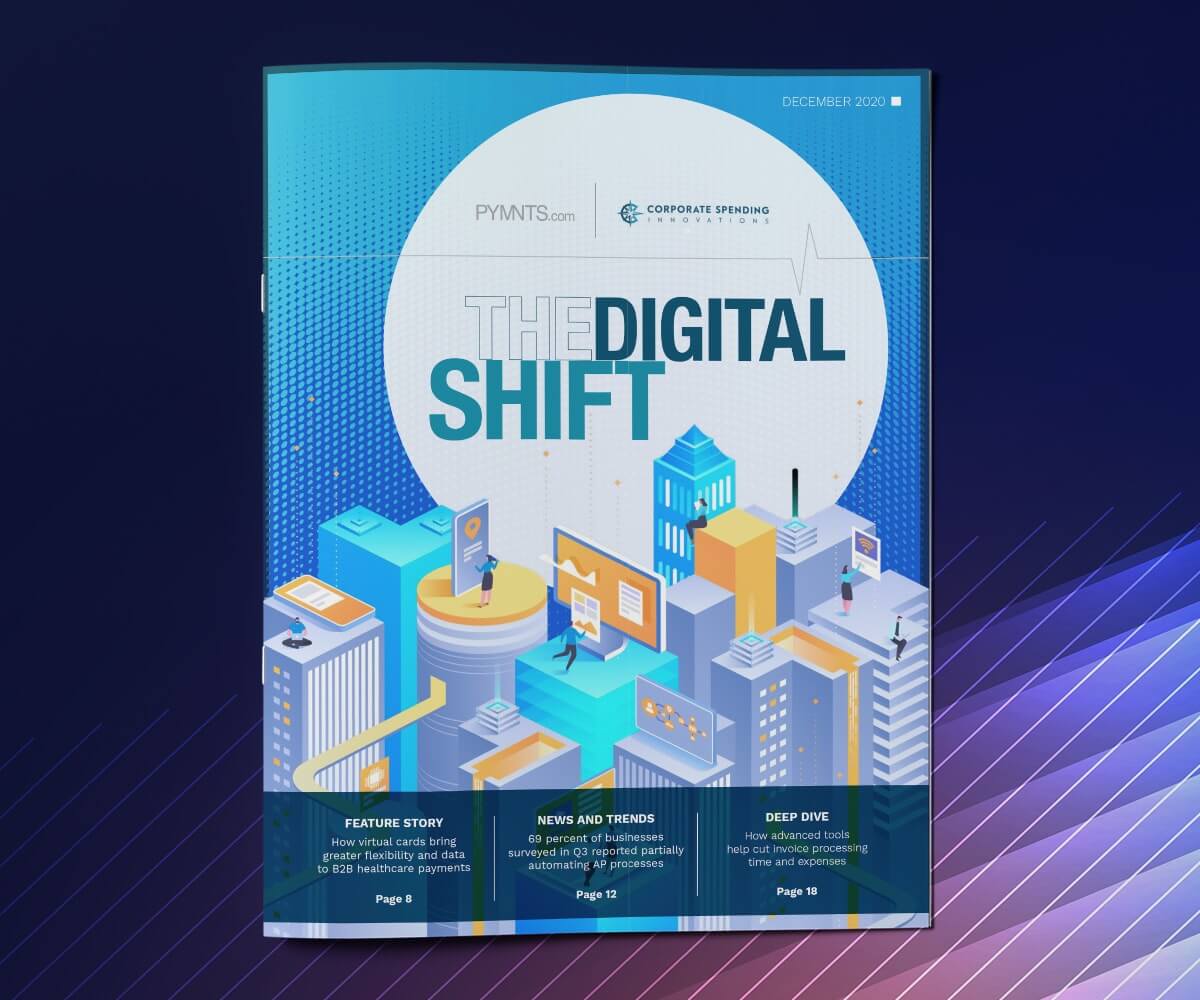The Digital Shift
This PYMNTS and CSI collaboration examines the frictions driving businesses to digitize their AP processes and how AI and ML-powered AP tools can help.

This PYMNTS and CSI collaboration examines the frictions driving businesses to digitize their AP processes and how AI and ML-powered AP tools can help.
The pandemic has exposed weaknesses in how companies deliver payments to each other, making many firms reconsider the paper check’s lengthy dominance in the business-to-business (B2B) transaction space. Legacy methods for paying vendors and reimbursing employees such as mailed paper checks have proved inconvenient for all parties during a time when many workers are no longer in-office to collect envelopes or print checks.
Cash-strapped vendors are likely to be hit hard by any postal delays that force them to wait even longer to get paid — lags that companies cannot afford while also facing the strains of the pandemic’s economic fallout. The inefficiencies of manual and paper-based processes were evident even before the public health crisis, as 69.8 percent of AP professionals said in 2019 that they wanted to innovate their departments to save time. The ongoing pandemic has only exacerbated these long-running problems.
Overview
The pandemic has left vendors struggling and more concerned than ever that they receive their funds without delay. Buyers, too, are eager for change and need to adopt accounts payable (AP) methods that are easily managed by employees working from home. Frictions like these are pushing more businesses to rethink their legacy approaches to business-to-business (B2B) payments and adopting various digital options for sending money. The push toward modernization does not stop at fund transfers, either, and companies are adopting digital supports to help them more smoothly and rapidly process invoices.
The Digital Shift Report examines the various ways that businesses are updating and automating their transaction methods as they cope with the challenges of operating during a global crisis.






